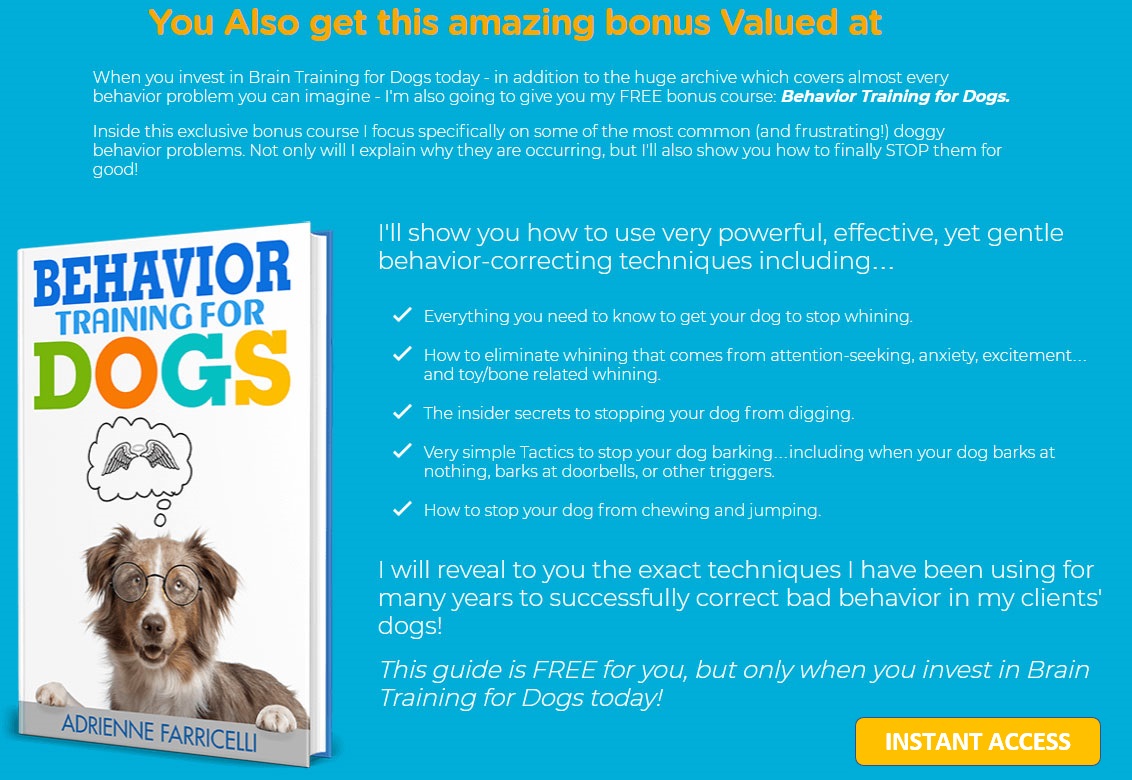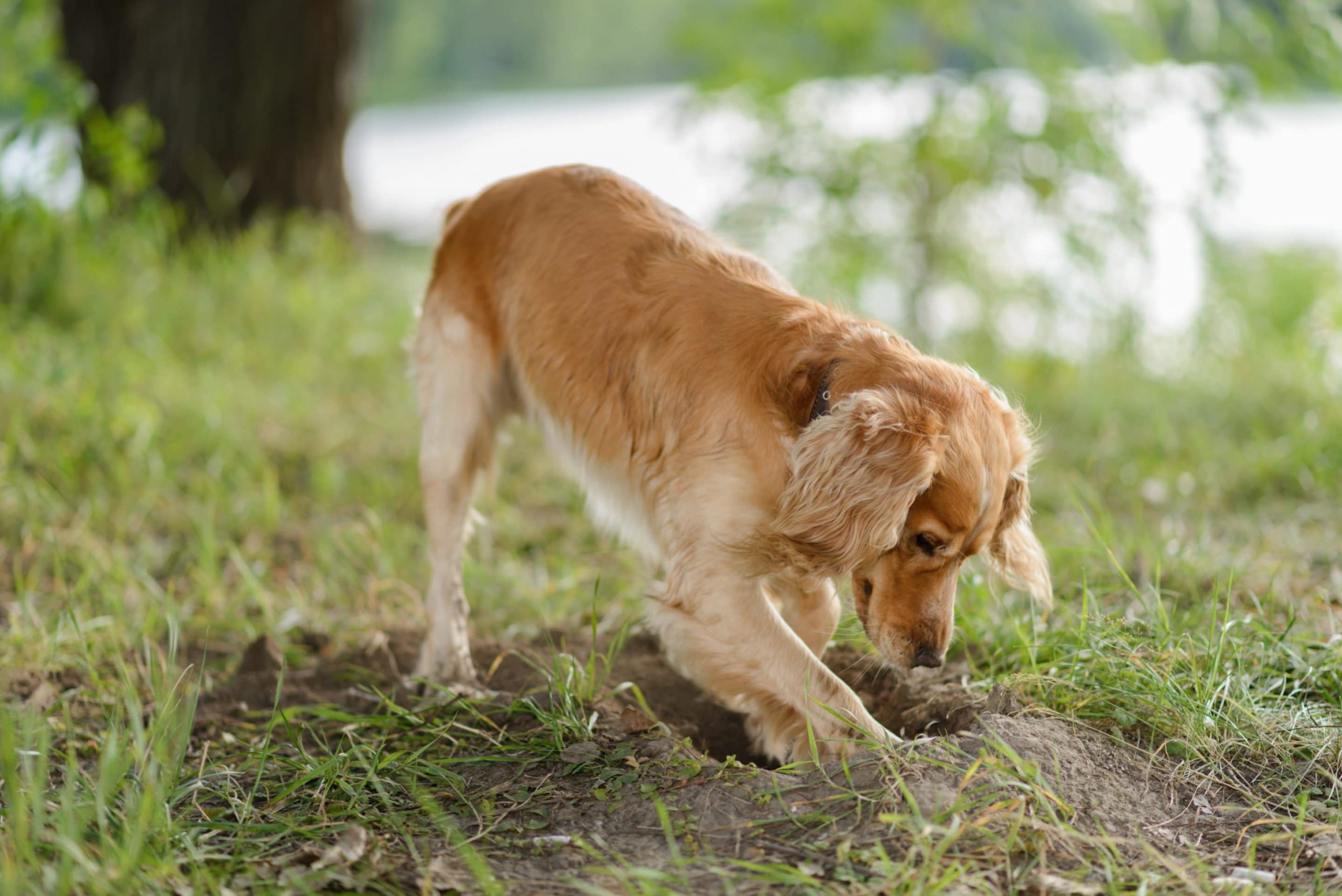How do you stop dogs from digging holes
Your dog digs holes everywhere, he is a real gardener and yet you have no plans for planting? Here are the steps to understand and respect in order to solve this behavior problem!
Understanding why the dog digs holes
To each problem its solution but especially its cause, let us see why your dog can be brought to dig holes in your garden (or elsewhere):
Cause n°1 : He is a dog... And yes, this behavior is quite natural in dogs (especially to hide/store resources: toys or food)
Cause n°2 : He is bored in his garden and this occupation allows him to occupy himself
Cause n°3 : He spends his energy by digging holes because he is not sufficiently spent on a daily basis
Cause n°4 : He seeks coolness when it is too hot
Meeting the dog's needs
As we have seen, a dog that is not sufficiently exercised will be able to release its excess energy through activities that are generally not really appreciated by the owner.
So, the solution here is to spend your dog well, and to do so, here are 4 expenses to propose to your dog and this, as regularly as possible:
• Physical activity: A minimum 30 minute walk outside the garden must be offered to each dog, whatever its breed. In addition, playful but especially educational games must be offered regularly and above all they must be offered at the initiative of the master.
• Social expenditure: The dog being a social animal, it needs to meet its fellow creatures as often as possible. However, the meetings must be controlled, secure, positive and regular.
• Mental expenditure : To tire a dog, there is nothing better than a good obedience session or an educational game to stimulate him mentally and encourage his thinking.
• Olfactory expenditure: This is by far the most important of all since the sense of smell is the most developed sense in dogs. Tracking exercises/games can then be proposed and the dog should be allowed to smell the odors of his friends during his daily walks.
If, on a daily basis, you stimulate your dog sufficiently through these 4 axes, you will already notice a reduction of holes in the garden simply because your dog will only want to rest!

Keeping your dog busy in the garden
We have also seen it in the different causes that can explain why a dog digs holes: it is boredom! Boredom is by far the dog's worst enemy and it is up to you as the owner to make sure that your dog is not bored and is stimulated as often as possible.
Moreover, you should know that after 15 minutes, a dog will naturally move on to something else. So, if you leave your dog alone in the garden for too long, don't be surprised if he finds things to do that you don't like, but that keep him busy.
Keeping your dog busy in the garden means making the garden super nice and super attractive by, for example, spreading treats, kibbles or other delicacies all over it so that your dog is stimulated by smell and is more occupied looking for the rewards than digging holes.
Teaching your dog a cue to give up
The most important thing to solve this behavior that you consider to be annoying is not to punish your dog. In fact, punishing a dog for a behavior that is natural and that, in addition, is caused by your failures would be the most inconsistent thing to do to your dog.
Attention: it will be just as inconsistent to punish your dog for a "mistake" (here digging holes) if it was not done in your presence, and this for several hours. Your dog will not understand why he is being punished. So, always respect (for any situation) the following rule: not seen, not taken.
In fact, catching your dog in the act and giving him an order to give up is not punishing and is the right thing to do.
So, teach your dog a give-up command such as "no", "stop" or any other word you choose, as long as it is always the same for that specific situation.
To positively teach your dog a give-up command, he must associate that voice command with something positive when he gives up.
In other words, we must put in the dog's head, through a positive association and especially repeated, that giving up is winning. And to do this, I suggest that you first associate the indication you have chosen with the fact of obtaining a treat, quite simply.
So, do the following exercise several times in a row:
• Step 1: Say "stop" and immediately give your dog a treat so that he associates this word with getting a treat. • Step 2: Once the association is well established for your dog, you can try using it in a situation but with a distraction of moderate value to your dog (don't start with his favorite toy, for example).
Be careful, the learning process must be progressive, if you go too fast you will not succeed in obtaining a clear and immediate renunciation! So respect your dog's learning rhythm!
Then, one of the important elements in this work will always be to anticipate your dog's behavior as much as possible because it will be much easier for you to stop an intention to do something rather than an action already in progress.

Diverting your dog to another behavior
Then, when you ask your dog to give up, you must always divert him towards a more appreciated behavior because giving up for the sake of giving up will absolutely not interest your dog.
Know that the dog is an opportunistic animal: he will go towards what is pleasant for him. If he gives up his favorite activity of the moment for ... nothing (or even a punishment) he will certainly prefer to keep busy by digging holes. But if you offer him another activity, even more fun for him, he will really understand that giving up is winning!
Finding alternative solutions
Finally, to prevent your dog from making holes, you can find alternative solutions:
• Accept that your dog digs holes but in delimited areas where you will have previously hidden all sorts of toys and/or treats. It is also a good idea to use sand or dirt as the area.
To teach your dog to dig only in a limited area, you will encourage and reward him to do so in the chosen place and as soon as he digs elsewhere, you will put in place the indication to give up and you will accompany the dog to the place where he can dig as he wishes.
• Of course, protect the areas of your yard that you do not want your dog to damage.
• Finally, the solution to your problem will be to put your dog's excrement in the holes he makes. Since dogs are clean animals, they will not play where their feces are.

